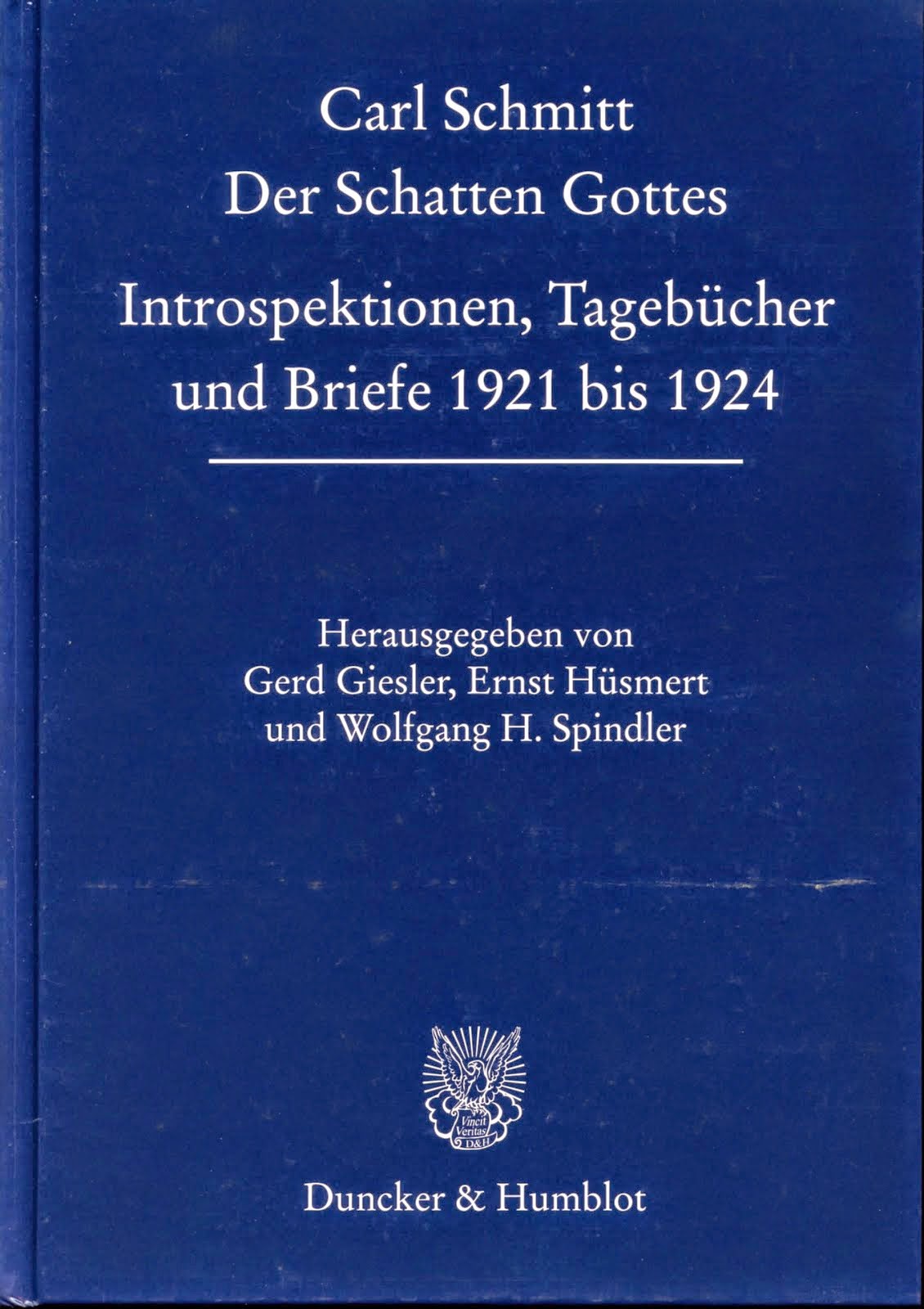Status: 1.1/24.5.15 / Bottom.

Fonti archivistiche
1. The Wiener Library.

Fonti archivistiche
(ordinamento casuale)
1. The Wiener Library.
«This document is a dossier produced by the Sicherheitsdienst der Reichsführung SS, 1936-1937, the result of an extensive investigation into Carl Schmitt, constitutional theorist of the Weimar Republic and ‘Crown Jurist' of the Nazi era. It contains correspondence and reports from former colleagues of Schmitt and others, denouncing his alleged anti-nazi, pro-Jewish background. Also included is correspondence between the editor of Das Schwarze Korps, and officials within the RFSS SD, in which an anonymous article first appeared (c1936), questioning Schmitt's Nazi credentials.
The Wiener Library loaned the original of this document to the Institut für Zeitgeschichte in 1968. It is now held at the 'Wiener Collection', Ramat Gan University, Tel Aviv. The custodial history prior to deposit is unknown.
Whilst the contents of the file are not numbered, they have been filmed in broadly chronological order.
Carl Schmitt, the controversial and influential political and legal theorist, was born on 11 July 1888 in Plettenberg, Westfalen. He was professor for jurisprudence in Greifswald, 1921; Bonn, 1922-1923; Berlin (Handelshochschule), 1926; Köln, 1933; and again in Berlin, during the Nazi era when he achieved the exalted position of ‘Crown Jurist'. During his career as a successful academic and teacher he became recognised as a fierce critic of the Weimar constitution, which he accused of having weakened the state and of relying on liberalism, which, in his view, was incapable of solving the problems of a modern mass democracy.
Whilst there is some debate regarding the extent to which his criticism of the Weimar constitution can be interpreted as support for the Nazi dictatorship, his opportunistic defence of Nazi racial ideology is not disputed. In the face of increasing doubts on the part of key elements within the Nazi security services as to the authenticity of his Nazi support, Schmitt, in his lectures and writings, made a point of emphasising that both the racial concept and the primacy of the party over the state were fundamental principles of National Socialist law. In addition he gave enthusiastic support for the Nuremberg Race Laws and played a significant part in purging Jewish influence on German legal thought.
He survived the investigations into his integrity as a National Socialist, the only result being the end of his work within the party. He retained his chair of law at the University of Berlin, as well as his official title of Prussian State Councillor. He never again dealt with domestic or party politics, but turned his attention to the study of international relations, and soon passed into obscurity. After the war he continued to publish but never held office. He remained a controversial figure, having never been formally charged with complicity with the Nazi regime, nor ever exonerated. He died on 7 April 1985».
The Wiener Library loaned the original of this document to the Institut für Zeitgeschichte in 1968. It is now held at the 'Wiener Collection', Ramat Gan University, Tel Aviv. The custodial history prior to deposit is unknown.
Whilst the contents of the file are not numbered, they have been filmed in broadly chronological order.
Carl Schmitt, the controversial and influential political and legal theorist, was born on 11 July 1888 in Plettenberg, Westfalen. He was professor for jurisprudence in Greifswald, 1921; Bonn, 1922-1923; Berlin (Handelshochschule), 1926; Köln, 1933; and again in Berlin, during the Nazi era when he achieved the exalted position of ‘Crown Jurist'. During his career as a successful academic and teacher he became recognised as a fierce critic of the Weimar constitution, which he accused of having weakened the state and of relying on liberalism, which, in his view, was incapable of solving the problems of a modern mass democracy.
Whilst there is some debate regarding the extent to which his criticism of the Weimar constitution can be interpreted as support for the Nazi dictatorship, his opportunistic defence of Nazi racial ideology is not disputed. In the face of increasing doubts on the part of key elements within the Nazi security services as to the authenticity of his Nazi support, Schmitt, in his lectures and writings, made a point of emphasising that both the racial concept and the primacy of the party over the state were fundamental principles of National Socialist law. In addition he gave enthusiastic support for the Nuremberg Race Laws and played a significant part in purging Jewish influence on German legal thought.
He survived the investigations into his integrity as a National Socialist, the only result being the end of his work within the party. He retained his chair of law at the University of Berlin, as well as his official title of Prussian State Councillor. He never again dealt with domestic or party politics, but turned his attention to the study of international relations, and soon passed into obscurity. After the war he continued to publish but never held office. He remained a controversial figure, having never been formally charged with complicity with the Nazi regime, nor ever exonerated. He died on 7 April 1985».
Top .














Nessun commento:
Posta un commento